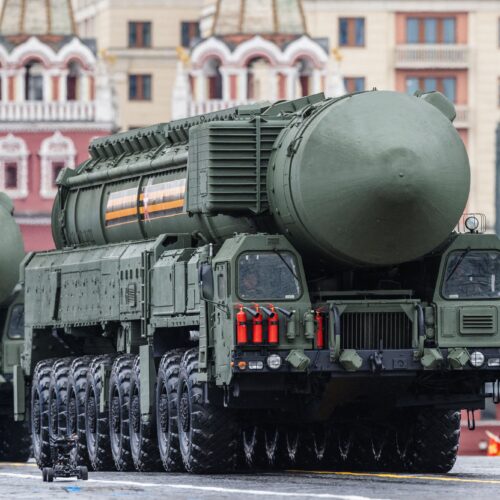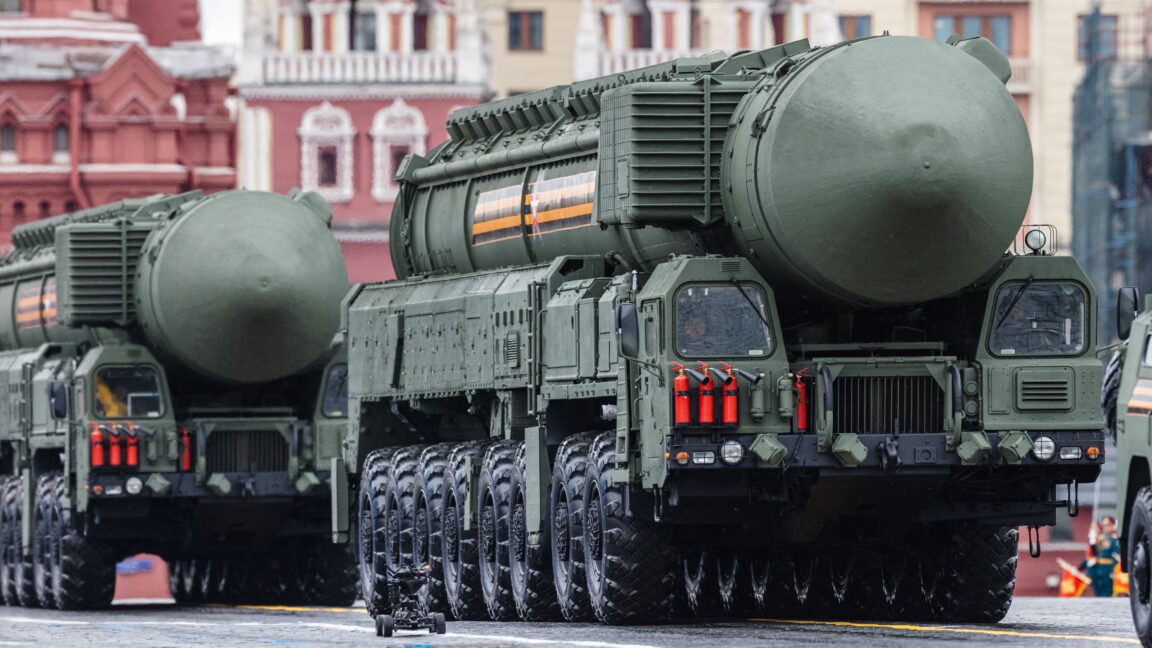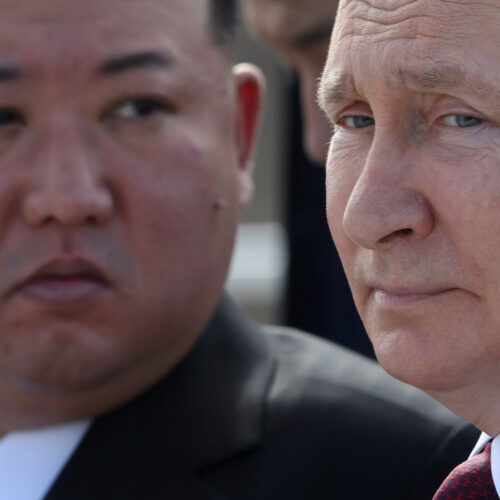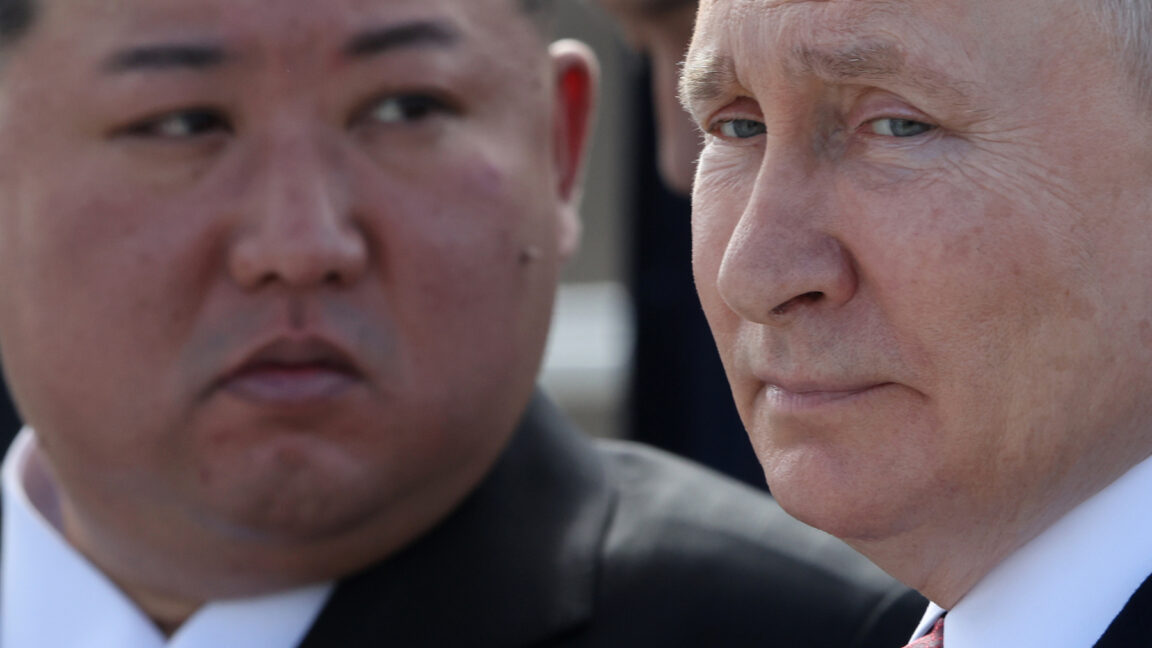When Vice President Kamala Harris used Tuesday night’s debate to tout her bipartisan appeal, she emphasized the backing she’d received from two particularly notable GOP officials.
“I actually have the endorsement of 200 Republicans,” she said, including “the endorsement of former Vice President Dick Cheney and Congressmember Liz Cheney.”
On its own, Harris welcoming the Cheneys to her tent is no big shakes. Liz’s work on the January 6 committee left her popular with Democrats. Dick is 83, old enough to seem less likely to start a reckless war, and long ago surpassed as a top Democratic bogeyman by Trump himself.
But if the Cheneys are no longer Republican voters, they remain unrepentant hawks, advocates of aggressively using US military power to achieve American policy aims. And Harris’ embrace of a top architect of the disastrous militarism of George W. Bush’s administration was one of several signals she offered suggesting fans of the neoconservative foreign policy associated with the Cheneys should feel comfortable with her as president.
On Gaza, Ukraine, Afghanistan, and other national security matters, Harris appeared to deliberately strike notes aimed at appealing to the interventionist consensus in Washington’s foreign policy establishment. The result was Harris’ latest and perhaps clearest suggestion that she will not venture far to the left of President Joe Biden, or former President Barack Obama, on national security. That may or may not be good politics, but it is a disappointment to the substantial number of Americans hoping that Harris would pursue a more restrained, anti-war foreign policy than Biden.
Harris, eager to make the election about Trump’s unfitness for office, is clearly trying to play it safe on national security, as with other policy areas. What’s notable, though, is what playing it safe entails.
Nowhere is that dynamic clearer than on Israel. While a handful of pro-Palestinian protesters clashed with Philadelphia police outside the debate, Harris responded to a question about achieving a ceasefire in Gaza by emphasizing her support for Israel’s “right to defend itself.” To be sure, she then pivoted. “It is also true far too many innocent Palestinians have been killed,” she said in a by-now-familiar caveat. “Children, mothers. What we know is that this war must end.” She also called for a two-state solution. But Harris’s formulation provides no real departure from Biden’s policy, which has, so far, failed to end the war.
On Tuesday Harris even seemed to suggest that she would limit US efforts to restrain Israel from actions that could cause a broader regional war. “The one thing I will assure you always, I will always give Israel the ability to defend itself, in particular as it relates to Iran and any threat that Iran and its proxies pose to Israel,” Harris said.
On Ukraine, Harris focused on distinguishing herself from Trump, who has touted his cozy ties with Russian President Vladimir Putin and repeated his dubious claim he could settle that war “before I even become president,” presumably by letting Russia keep the Ukrainian territory it now occupies.
Harris—appealing to “the 800,000 Polish-Americans right here in Pennsylvania”—argued that without US support, “Putin would be sitting in Kyiv with his eyes on the rest of Europe, starting with Poland.” What the vice president did not mention is that Poland, as NATO member, enjoys protection Ukraine does not, a mutual defense agreement with the US and its allies. Russia has invaded former Soviet republics, but never, dating to the formation of NATO, risked nuclear war by attacking a member of the alliance.
Harris also avoided offering her own prescription for ending the war in Ukraine, absent Ukraine, which is currently losing ground, achieving its increasingly far-fetched goal of regaining all the territory Russia has seized since 2014. (Nor did she or Trump opine on whether the US should allow Ukraine to launch missiles supplied by the US and other states at targets more than 60 miles inside Russian territory.)
Harris “acted as though it was still 2022 and would be forever as long as the U.S. kept funding the war,” with “no real explanation as to why this was in anyone’s best interest, even Ukraine’s, to continue on this course,” wrote Kelley Beaucar Vlahos, a senior adviser at the Quincy Institute, a think tank advocating more dovish US policy.
On Tuesday, Harris ticked off policy goals that included “ensuring we have the most lethal fighting force in the world.” Asked about US soldiers who died during the withdrawal from Afghanistan, Harris said she “agreed with President Biden’s decision to pull out of Afghanistan.” But the vice president also ripped Trump for launching the negotiations that preceded that pull-out. “He negotiated directly with a terrorist organization called the Taliban,” Harris said. Harris argued that the Trump gave away too much in those talks and failed to include Afghanistan’s then-government. That may be true, but her answer left her supporting the end of a 20-year war while deriding the mere existence of negotiations with the group the US had been fighting in that war.
Harris also mocked Trump for exchanging “love letters with Kim Jong Un.” The details of Trump’s diplomatic efforts are very much open to debate. But in singling out negotiations with the Taliban and North Korea, Harris flirted with the argument that the US should avoid talking to bad actors at all. That kind of criticism that has more often come from the hawkish right, and evokes the attacks that Republicans like John McCain and Mitt Romney—both of whom Harris name-checked Tuesday—once hurled at Obama.
In speaking about Afghanistan, Harris also made the curious statement that “as of today, there is not one member of the United States military who is in active duty in a combat zone in any war zone around the world.” That’s true if you do not consider the roughly 3,500 American solders in Syria and Iraq to be in war zones. But many of those troops are on bases repeatedly targeted by rocket attacks attributed to allies of Iran. In January, three American solders stationed in Jordan near the Syrian border were killed, and 30 injured, in a drone attack.
A Harris campaign spokesperson did not respond to questions about that statement. But the vice president’s comment does not suggest she sees an urgent need to end the US military presence in the Middle East.
Dick Cheney, who helped put US troops in Iraq 20 years ago, presumably approves.
Noah Lanard contributed to this article.




